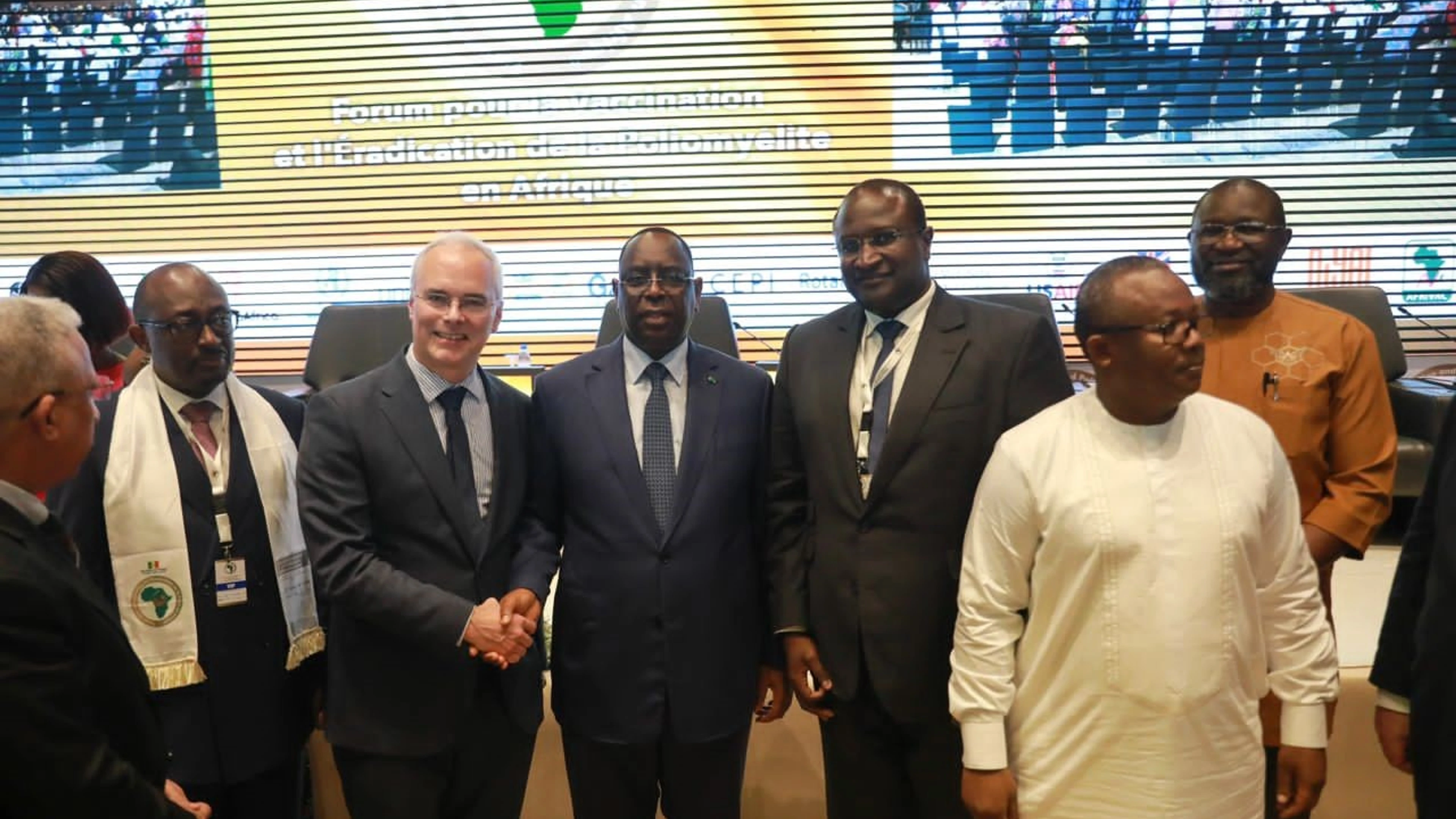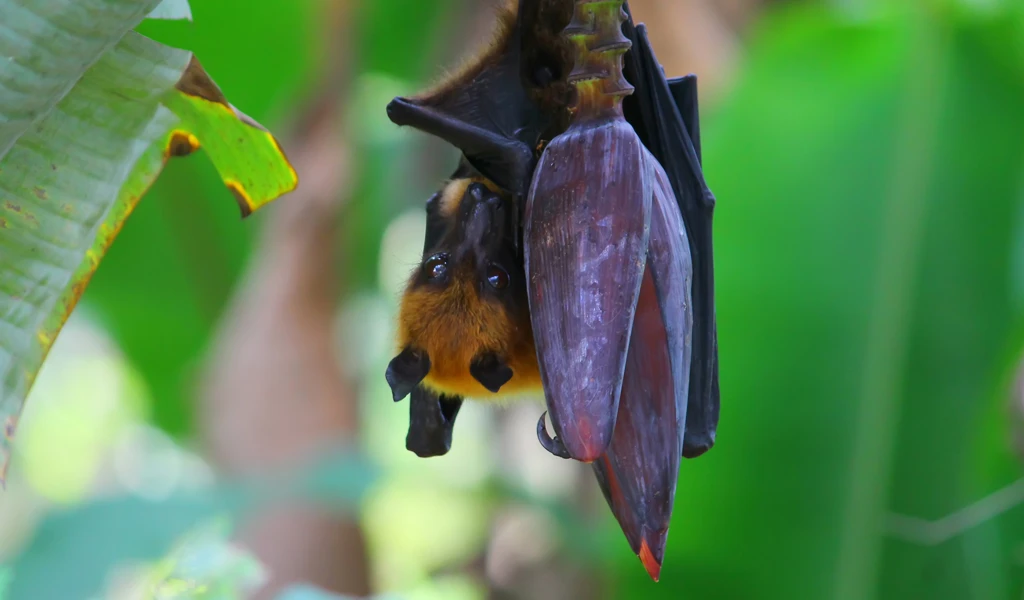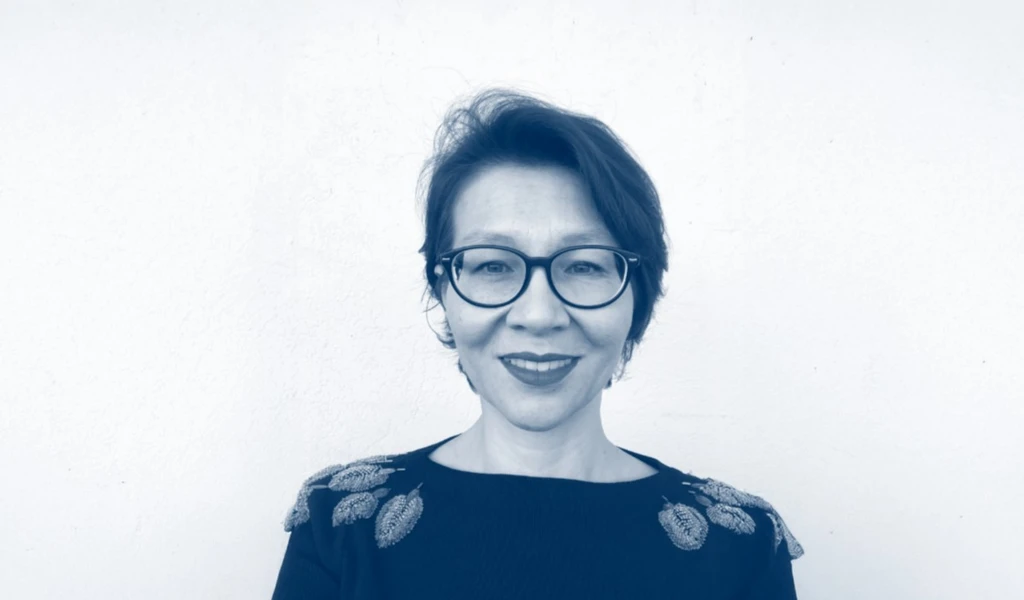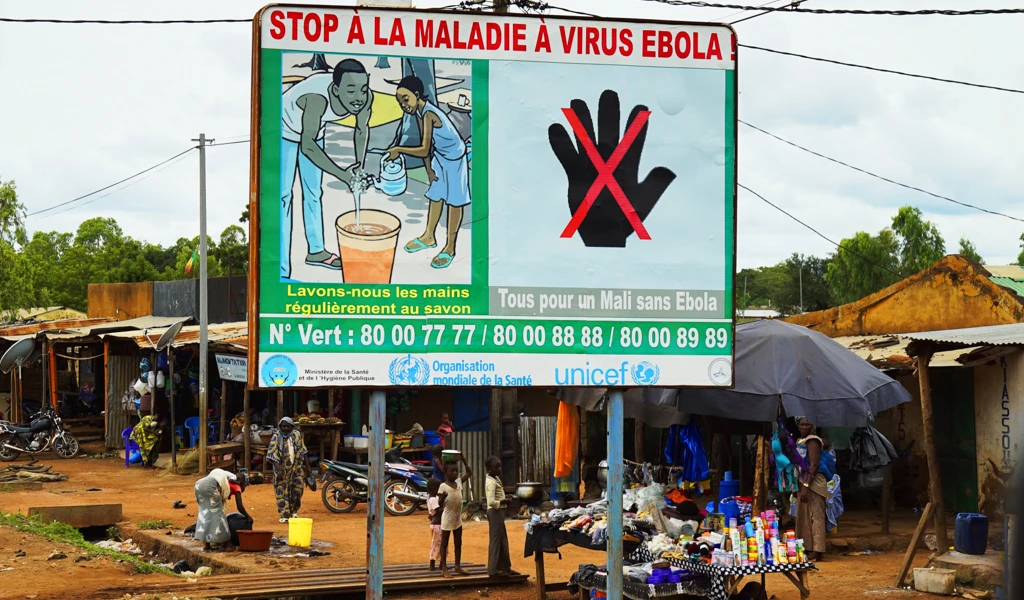The Republic of Senegal becomes the 35th country to join CEPI, pledging US$1M to support the organization's mission to prevent future epidemics and pandemics.
Announcement builds upon CEPI's existing partnership with the Institut Pasteur de Dakar and its work to enhance vaccine R&D and manufacturing in Africa.
14 December 2022, DAKAR, Senegal and OSLO, Norway. The Republic of Senegal has today joined the Coalition for Epidemic Preparedness Innovations (CEPI) in its mission to prevent future epidemics and pandemics. At a ceremony at the presidential palace in Dakar on 9th December 2022 in presence of President Macky Sall, an agreement was signed for a pledge of US$1M by the republic of Senegal to support CEPI's pandemic preparedness plan, making Senegal the 35th country to join the Coalition.
Senegal's investment in CEPI comes at a critical time as the global community continues to endure the repercussions of the COVID-19 pandemic and strives to ensure the world is better prepared to respond to future threats. Senegal's political and financial support to CEPI will bolster the organization's efforts to reduce the risk posed by epidemics and pandemics by developing vaccines for known infectious disease threats (such as Lassa fever, Middle East Respiratory Syndrome and Nipah virus), and build on the scientific advances made during COVID-19 to prepare in advance for ‘Disease X' — the threat of an unknown virus with pandemic potential.
Mrs Oulimata SARR, Senegal Minister of Economy, Planning and Cooperation, said: "The signing of this investment agreement from Senegal to CEPI marks a further step and a confirmation of Senegal's commitment to work with the Africa CDC, the African Union and technical and financial partners to make the vaccine self-reliance of Africa a reality. We are confident that the collaboration of CEPI and IPD under the MADIBA project to manufacture vaccines in Africa for Africans will be strengthened by this agreement."
Dr Amadou Alpha Sall, CEO of the Institut Pasteur de Dakar added: "By joining this global coalition, Senegal continues to show its commitment in tackling epidemics and pandemics. The Institut Pasteur de Dakar values greatly the collaboration with CEPI, who is a key partner for the success of the MADIBA project aiming to manufacture vaccines for routine immunization, epidemics and pandemics for Africa."
Dr Richard Hatchett, CEO of CEPI, said: "I am honoured that Senegal has chosen to join CEPI and support our vital work to develop vaccines against epidemics and pandemics and make them accessible to all people in need. Our globally connected world has made humanity more vulnerable than ever to the rapid spread of new infectious diseases. In 2022 alone the ongoing COVID-19 pandemic, the outbreak of Sudan ebolavirus in Uganda, and the global spread of mpox have all served as stark warnings of the threat of infectious diseases, and sobering reminders that they do not respect borders. I am grateful to President Sall for his recognition that successfully tackling epidemics and pandemics is a global endeavour in which every country has a vital role to play, and from which every country stands to benefit."
A central element of CEPI's strategy is to support vaccine development and manufacturing on the African continent. In Senegal, CEPI is providing strategic and technical support to the Institut Pasteur de Dakar (IPD)'s MADIBA (Manufacturing in Africa for Disease Immunization and Building Autonomy) project which will bolster health security in the region by developing a regional vaccine manufacturing hub making vaccines in Africa, for Africa. CEPI is funding vaccine R&D programmes in countries across the continent, as well as implementing a Memorandum of Understanding with the African Union/ Africa CDC to enhance vaccine R&D and manufacturing in Africa, and actively participating in the Partnerships for African Vaccine Manufacturing (PAVM).
CEPI's plan to end pandemics
CEPI has embarked upon an ambitious five-year plan to dramatically reduce or even eliminate the future risk of pandemics and epidemics, potentially averting millions of deaths and trillions of dollars in economic damage. Central to the plan is CEPI's goal — supported by the G7 and G20 — to compress the time taken to develop safe, effective, globally accessible vaccines against new threats to just 100 days. Achieving this ‘100 Days Mission', as embraced by the G7 and G20, would give the world a fighting chance of containing a future outbreak before it spreads to become a global pandemic.
—ENDS—
Notes to Editors
CEPI has to date received pledges of almost $1.8 billion in funding towards its $3.5 billion pandemic preparedness plan.
About CEPI
CEPI is an innovative partnership between public, private, philanthropic, and civil organizations, launched in 2017, to develop vaccines against future epidemics. Its mission is to accelerate the development of vaccines and other biologic countermeasures against epidemic and pandemic threats so they can be accessible to all people in need.
Prior to COVID-19, CEPI's work focused on developing vaccines against Ebola virus, Lassa virus, Middle East Respiratory Syndrome coronavirus, Nipah virus, Rift Valley Fever virus and Chikungunya virus — it has over 20 vaccine candidates against these pathogens in development. CEPI has also invested in new platform technologies for rapid vaccine development against unknown pathogens (Disease X).
CEPI has played a central role in the global response to COVID-19, supporting the development of the world's largest portfolio of vaccines against SARS-CoV-2 and its variants with a focus on speed, scale and access, as well as co-leading COVAX, the global initiative to deliver fair and equitable access to COVID-19 vaccines. CEPI is also the world's leading funder of R&D for broadly protective coronavirus vaccines which could protect against future variants of COVID-19 as well as other coronaviruses with epidemic and pandemic potential.
CEPI has embarked upon an ambitious US$3.5bn five-year plan — called CEPI 2.0 — to dramatically reduce or even eliminate the future risk of pandemics and epidemics. Central to the plan is CEPI's goal — supported by the G7 and G20 — to compress the time taken to develop safe, effective, globally accessible vaccines against new threats to just 100 days. Achieving this ‘100 Days Mission' would give the world a fighting chance of containing a future outbreak before it spreads to become a global pandemic. Read the plan at endpandemics.cepi.net/
Follow our news page for the latest updates. Follow us @CEPIvaccines, @DrRHatchett, and LinkedIn.
About IPD
The Institut Pasteur de Dakar (IPD) is a Senegalese private foundation in the public interest with the mission to advance public health and wellbeing in Africa by conducting research, providing training and education, sharing scientific knowledge, and advancing biotechnology. Since its founding in 1896, IPD has been at the forefront of the fight against infectious diseases in West Africa. IPD is one of the four WHO prequalified manufacturers to supply yellow fever vaccine to UN's Agencies.
Follow IPD via @PasteurDakar and LinkedIn.
Media Contacts
CEPI
Email: [email protected]
Phone: +44 7387 055214
IPD
Email: abdou.lo@wesaywedo.com
Phone: +221 77 529 52 51




